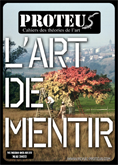Le langage comme art du mensonge. Une analyse à partir d'Eric Hazan dans la LQR. La propagande du quotidien
Abstract
 Télécharger l’article
Télécharger l’article
Paru dans : Proteus n°18

Quels sont les enjeux du langage à l’ère postmoderne ? Pour Eric Hazan, la « Langue de la Ve République » (LQR) est une « langue qui dit ou suggère le faux même à partir du vrai ». L’euphémisme y joue un rôle central, consistant « à prendre un mot banal, à en évacuer progressivement le sens et à s’en servir pour dissimuler un vide qui pourrait être inquiétant ». A partir de cette logique, nous pouvons nous interroger : le brouillage du code sémantique et syntaxique induit subtilement par la « LQR » n’est-il pas un mécanisme de propagande et de mensonge ? Quels sont les enjeux de cette langue qui semble aujourd’hui nous « gouverner » ? Pour comprendre le fondement philosophique de la LQR, il faut remonter au nominalisme et au conventionnalisme.
Mots-clés : nominalisme linguistique — conventionnalisme — capitalisme — néolibéralisme
What are the stakes of language in the postmodern era? For Eric Hazan, the "tongue of the 5th Republic" (LQR) is a "tongue that says or suggests the false even coming from the true". Euphemism plays a central part in it, by "taking a banal word, progressively drawing out its meaning and using it to hide a vacuum that could be worrisome". From this perspective, we can ask: isn’t the scrambling of the semantic and syntactic codes subtly induced by the "LQR" a mechanism for propaganda and lies? What are the stakes of this tongue that today seems to "govern" us? To understand the philosophical foundations of the LQR, we have to work our way back to nominalism and conventionnalism.
Keywords : linguistic nominalism — conventionalism — capitalism — neoliberalism








